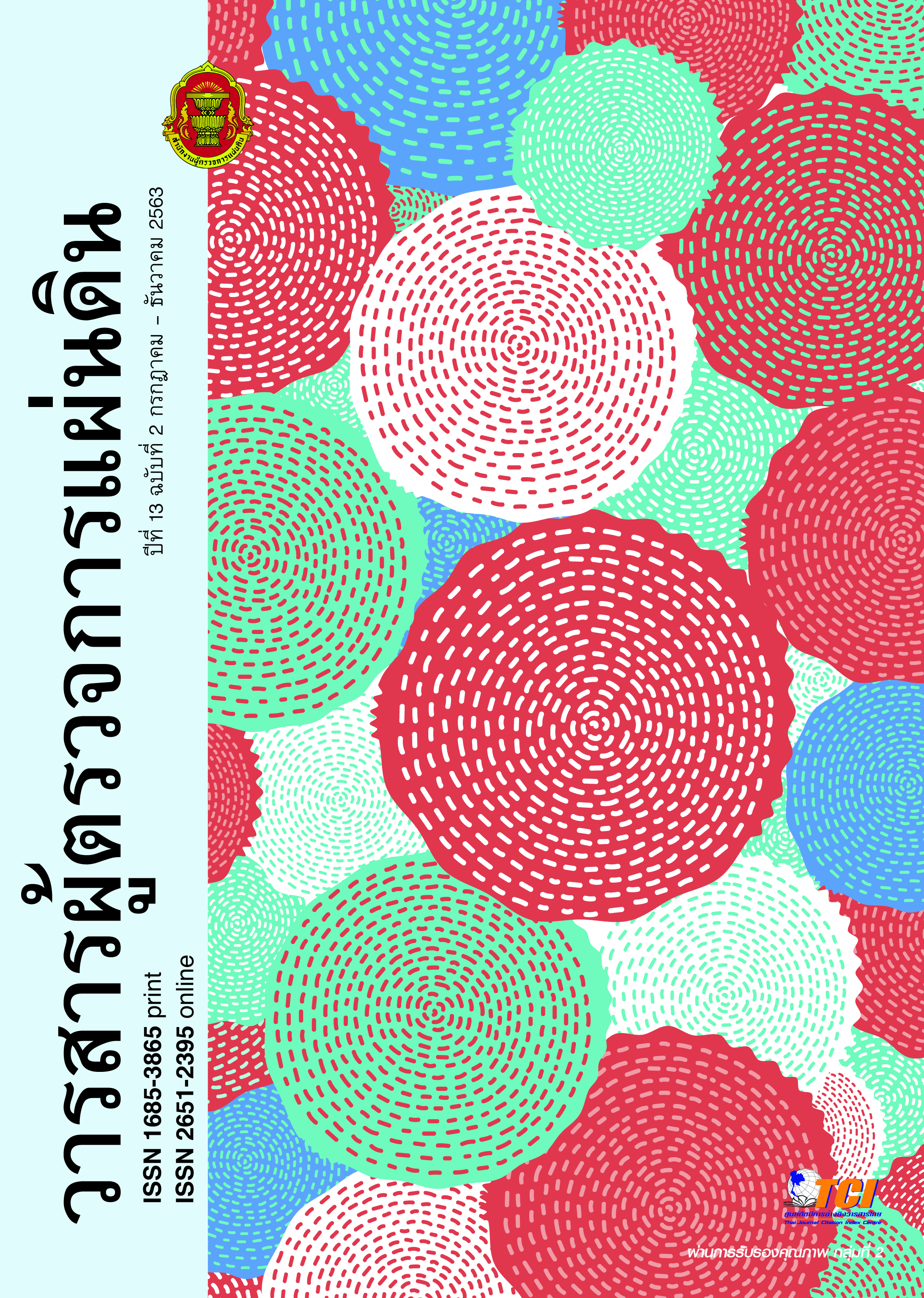Development and utilization of research tools in activities enhancing ethics, follow-up, and life skills for students in a long-term
Keywords:
Research Tools, B&D Form (Before Action Review: BAR & During Action Review: DAR), A&R Form (After Action Review: AAR & Reflective practice), long-term following upAbstract
Abstract
The development and use of research tools in following up the results of activities focusing on enhancing long-term ethics and life skills among the students in a long-term have been shaped from Before and During Action Review Forms, After Action Review and Reflective Practice Forms, and Performance Assessment Form. The development of research tools has had prominent features and benefits. This journal has been used to investigate the results of research activities which are parts of the research project titled “Evaluation and Knowledge Synthesis on the Ethical School Project under Bangkok Metropolitan Administration”. and use developed tools for research “Participatory Process and Knowledge Synthesis, the Project to Drive School Morality in the Education Fund Project to the Community Nong Prue District Kanchanaburi Province ". The development of research tools has had the prominent features and benefits. That is, research tools used for knowledge management have been developed and adjusted to be proper to the ever-changing context of school. The data and body of knowledge systematically collected from participatory activities have been used as the database for developing activities, solving problems, and becoming a thinking model or framework. This database can be used to reduce the operational steps of ethical enhancement project or any activities related to evaluating the positive influences on students’ behaviors, which cover five perspectives and life skills. The knowledge acquired has been reviewed in a process-driven manner to seek weakness, strength, opportunity, and threats based on the recorded data and knowledge management in each activity systematically. The process has generated data that can be used for analyzing and planning project or activities constantly. The new data or body of knowledge can be recorded relying on these method and concept without any necessity to make a start from the very beginning. Thus, the outcomes bring convenience and time-saving in planning activities. Passing on or sharing knowledge from activity participation can be conducted orderly. Database transfer has been easily proceeding and accessible. This transfer enables more easily knowledge exchange and reflections. The empirical database or body of knowledge of each school can be compared in the areas of process and steps of successful activities. The main teacher (researcher) can collect data, analysis result, steps of running activities, and write up operational or activity manuals for the school. Its database can be used for monitoring the positive influences on students’ behaviors to enhance long-term students’ life skills which are proper student’s behaviors without any necessity for creating a new tool for following up the results. Also, the tools can be applied for data collection or other tasks of the school.
Downloads
Published
How to Cite
Issue
Section
License
- Content published in the journal is personal opinions of authors which the office of Ombudsman and the editorial team are not bound to be accordance with.
- Articles, content, images, etc. published in the Journal of Ombudsman are copyright of the Journal. If any person or entity wants to bring all or part of it to publish or to do any action. Must obtain written permission from the journal's first.



